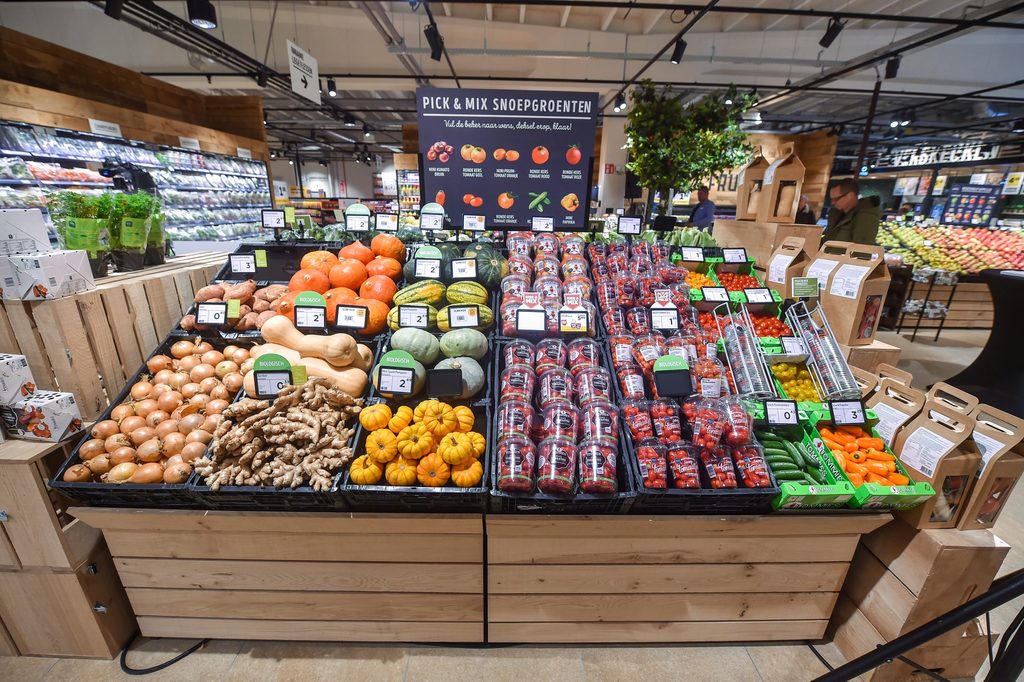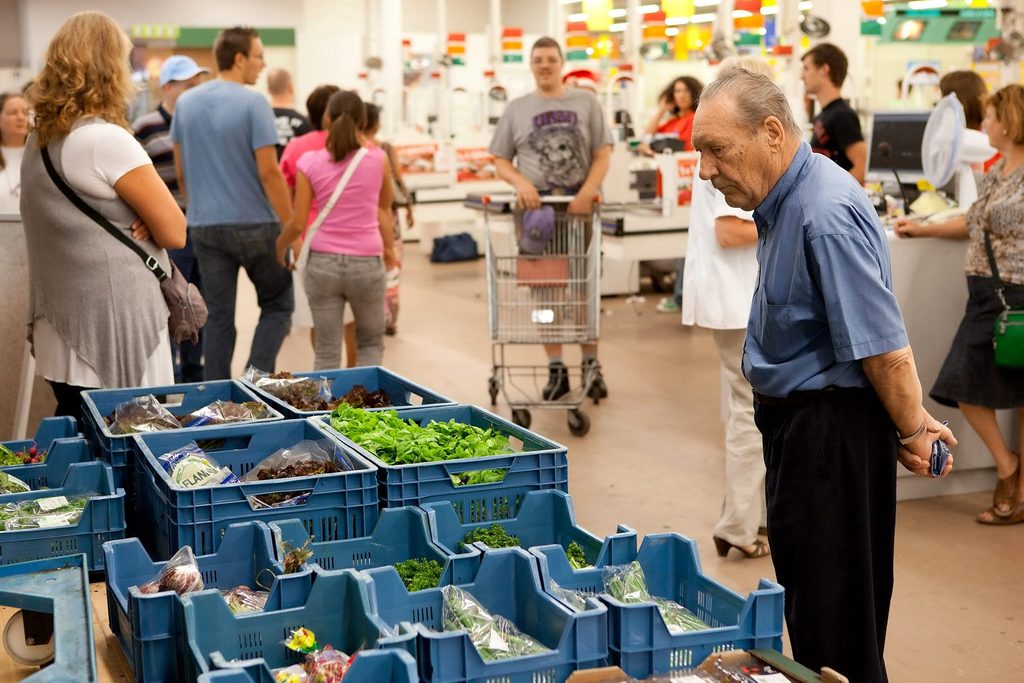In their periodic analysis of supermarket prices, consumer rights organisation Test Achats has noted that present prices are on average 9.4% higher than at the same time last year. But although high, prices have stabilised since the spring.
Despite the organisation's continuous calls for supermarket inflation to be brought down so that prices fall in line with international markets, groceries remain almost 10% more expensive than in November 2022. This calculation is based on a grocery basket of more than 3,000 supermarket products across seven supermarket chains.
Driving the increase are high vegetable prices (+20% compared to last year) and inflation for frozen products (on average +12%). "Even last year, inflation for vegetables was already very high; in two years, onion prices rose by as much as 78%, and carrots by 65%," the organisation's spokesperson Laura Clays noted.
The price of sugar on international markets has been rising for some time, pushing up prices for confectionary, such as strawberry jam and chocolate biscuits.
On the other hand, vegetable oil prices on international markets have halved since March 2022, though the cost of frying oils is still rising. The same is true for dairy products: prices have been falling since June last year but most semi-skimmed milk products and gouda cheeses are more expensive.
Test Achats again deplored that the trends seen in international markets are not sufficiently reflected in supermarkets.
Bittersweet prospects
Highlighting progress in supermarkets, Test Achats points out that pork and beef mince prices have fallen 5.3%, whilst balsamic vinegar fell 9.7%. The organisation also noted an incremental improvement in inflation this month, which has fallen from 11.5% observed last month. Statbel data also showed that food prices have remained stable since April.
With the price of raw materials falling, Fevia, the federation that represents the food sector, expects that prices in supermarkets will too, but it has already warned that this decrease will not come next year either.
Fevia pointed to sugar prices to highlight the fact that not all raw materials are becoming cheaper. It argues that suppliers of raw materials (such as sugar) are also struggling with rising costs, for example plastic and glass packaging. The federation asserted that many producers have not passed on their cost increases in recent years, instead taking a hit to their margins. Four in 10 Belgian food producers expect a further decline in their profitability over the next six months.
Whilst the food producers' federation lacks optimism about a drop in prices, Le Soir takes a contrary view, reporting that if present conditions continue, food inflation should plunge from January onwards until it reaches 0% by March-April.

Credit: Belga / Luc Claessen
However, it remains unlikely that food prices will fall below pre-inflation levels, as the three determinants of producer prices – the cost of raw materials (including energy), labour costs and profit margins – are not expected to drop, explained Eric Dor, head of economic research at the French business school Iéseg.
"At least one of these factors has to fall. Profit margins? I can't see producers and distributors touching them unless we go into recession," he said. "Wages? They won't go down either. At best, they will rise less." The fact that wages will continue to rise due to automatic wage indexation means consumers will not lose sufficient purchasing power to push producers and distributors will have to lower their prices to continue selling their products.
Related News
- Three in ten Belgians feel 'less guilty' when paying bills late
- Inflation rises in Belgium for first time since March
Even if the prices of raw materials continue to drop, the delay in this being translated into grocery costs will be long, owing to the time lag between the production and sale of food.
It is also possible that in the ongoing negotiations between producers and distributors, there will be a strong temptation to increase margins thanks to lower raw material prices to make up for cost increases, or possibly as a windfall effect. Test Achats has previously called out this action, denouncing the "greedflation" that allows producers to profit at the cost of consumers.
This week, the Competition Authority and the Prices Observatory report are expected to shine a light on whether these practices were carried out.

